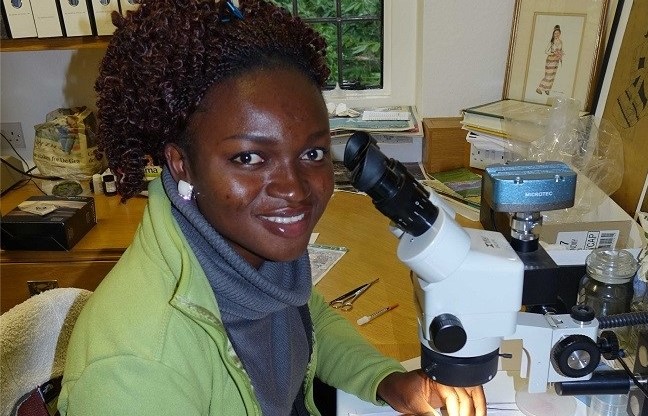Nigerian conservationist, Iroro Tanshi, has received a prestigious Whitley Award worth £40,000 to save the short-tailed roundleaf bat after discovering the country’s first and only known population.

The Whitley Awards are presented annually to individuals from the Global South by UK-based charity the Whitley Fund for Nature.
Iroro is one of six conservationists to be recognised in 2021 for their commitment to conserving some of the planet’s most endangered species and spectacular natural habitats. During a virtual celebration Wednesday, May 12, they received messages of support from charity Patron HRH The Princess Royal and Trustee, Sir David Attenborough.
Sir David Attenborough, WFN Trustee, said: “Whitley Award winners are local environmental heroes, harnessing the best available science and leading projects with passion. I admire their courage, their commitment, and their ability to affect change. There are few jobs more important.”
Since establishing the project in 2016, Iroro has worked with communities and hunters. She has educated and raised awareness around the importance of bat conservation through training exercises, as well as working towards a local anti-fire law which was introduced in the Buanchor community in 2017 and has resulted in zero wildlife fires in the area over two consecutive years.
With her Whitley Award, Iroro will now expand her work from Afi Mountain Wildlife Sanctuary and Cross River National Park to the Mbe Mountains, locating new caves and tracking bats to better understand their distribution. As well as identifying new roosts for protection, she will address the drivers of their decline.
Iroro aims to reduce the frequency of wildfires in these new sites by 100% by helping farms to find alternatives to agricultural burning, launching an early-warning system and establishing an anti-fire taskforce in each community.
Additionally, she will reduce cave disturbance from fruit bat hunting. Iroro will work with community members, vendors of bat meat, hunters, and Forest Management Committees in each village to establish a hunting ban at high priority caves, while introducing alternative sources of protein.
Iroro Tanshi said: “My earliest memories of being interested in nature are from around the age of six, when I would watch nature documentaries with my father. My interest in bats started during a visit to Uganda in 2010 for a Tropical Biology Association field course and, since then, I have been devoted to protecting these cute little creatures.
“The funding will allow us to expand the scale and scope of our intervention efforts to the other four major communities around Afi Mountain Wildlife Sanctuary and Cross River National Park. Receiving a Whitley Award has given me, and my team, hopes of saving this precious creature from extinction and we are very grateful for the support.”
Edward Whitley, Founder of the Whitley Fund for Nature, said: “We are thrilled for Iroro to receive the Whitley Award. As well as striving to save this special bat species, her work will build conservation capacity by training young conservationists in Nigeria. Iroro should be extremely proud of the remarkable results that she and her team have achieved already, and we look forward to seeing her replicate her successes across a wider area.”
The short-tailed roundleaf bat had not been seen in the wild for 45 years. It was thought to occur only in Cameroon and Bioko until Iroro and the Small Mammal Conservation Organisation discovered a group of just 15 individuals in south-eastern Nigeria in 2016. With all previously known roosts destroyed or their statuses unknown, this population is the last confirmed long-term site for the species.
Forest fires, which destroy critical foraging habitat, often originate on farmland and have intensified over the past decade due to reduced rainfall and a drier climate. The species is also at risk from cave disturbance, as COVID-19’s economic fallout forces more people to hunt fruit bats, flushing out the short-tailed roundleaf bats with whom they share their roosts. Bats are feared by the majority of Nigerians and are often considered witches despite facilitating farming through natural pest control and pollination.
Bats are some of the world’s most maligned mammals, a perception that’s only worsened since the outbreak of COVID-19.
